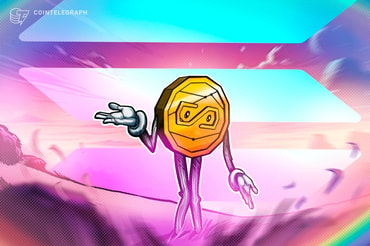The Protocol: ENS on Bitcoin; Worldcoin, Without the Eyeballs

Election 2024 coverage presented by
Welcome to The Protocol, CoinDesk’s weekly wrap-up of the most important stories in cryptocurrency tech development. I’m Marc Hochstein, CoinDesk’s deputy editor-in-chief for features, opinion and standards.
IN THIS ISSUE:
This article is featured in the latest issue of The Protocol, our weekly newsletter exploring the tech behind crypto, one block at a time. Sign up here to get it in your inbox every Wednesday. Also please check out our weekly The Protocol podcast.
THE EYES DON’T HAVE IT: Over two years ago, Sam Altman, co-founder of OpenAI, launched Worldcoin, a blockchain project known for its distinctive metal orb used to scan eyeballs. Recently rebranded as “World Network,” the platform provides users with digital passports — verified through the iris scans — to help online services differentiate humans from bots in an AI-driven internet. Now, as CoinDesk’s Sam Kessler reported this week, a group of crypto veterans, including the co-founders of decentralized finance juggernaut Lido, are preparing to launch “Y,” a blockchain identity platform aimed squarely at competing with World Network. Sam obtained an internal planning document for the new project. It lays out a vision for a new blockchain-based identity platform that skips World’s controversial eyeball-scanning Orb. Read more.
CRAWLING THE WEB, AS IT WERE: Aave, the largest decentralized-finance (DeFi) lending platform, is canvassing its community to gauge the level of interest in deploying on the Bitcoin layer-2 network Spiderchain. The Aave-Chain Initiative (ACI), the driving force behind the protocol, published a call for comments on the proposal by Spiderchain developer Botanix Labs to expand the lender, which has more than $17 billion in total value locked, into the emerging Bitcoin DeFi environment. The idea of deploying on a Bitcoin layer 2 highlights the appetite for bringing functionality that is common elsewhere in the crypto ecosystem to the original blockchain. The bitcoin (BTC) price soared above $90,000 for the first time last week. Developers of projects native to other networks may be seeking to harness the deep reserves that are held in BTC. Read more.
ENS ON BITCOIN? Spaces Protocol, a decentralized naming system built on Bitcoin, is set to launch on mainnet Wednesday at around 2P ET (block height 871222). If it sounds like the Ethereum Naming Service except on a different blockchain, founder Mike Carson claims that Spaces improves on ENS in several ways. Spaces, he told CoinDesk, is “designed to scale (top level spaces are on bitcoin, second level are done with zero knowledge proofs as a second layer on bitcoin). ENS is just .eth on Ethereum. ENS is run by a foundation, they have their own token, and Spaces has no foundation [and] no token. We built Spaces to be truly cypherpunk – no separate chain, no separate token, no foundation, with the Bitcoin used for auctions [of namespace] burned to avoid any conflict of interest.”
MORPHEUS AWAKENS: Morpheus, one of several blockchain projects seeking to decentralize artificial intelligence, is up and running in the wild, the team behind it announced Monday. Like other decentralized AI networks, Morpheus seeks to curtail the negative side effects of AI, such as centralization, censorship, and monopolistic control of data. Morpheus was built using the codebase for Lumerin, a protocol that runs on the Arbitrum blockchain (which itself is a layer-2 running atop Ethereum, the largest smart contract network). The network’s native MOR token works on L2s Arbitrum and Base; on the main Ethereum chain; and on DeFi protocols Uniswap and Aerodrome.
BANGKOK – It’s all but impossible to carry out a governance attack against Meta.
Shareholder activism is a non-starter in Mark Zuckerberg’s empire, because the company’s dual-class share structure – where insider-held Class-B shares have more voting weight than Class-A shares available to the public – means he maintains roughly 58% voting control of the company.
But in the world of decentralized autonomous organizations (DAOs), which are in many ways analogous to corporations, it’s one vote for one token.
That is how a whale – a large token holder – who goes by the handle Humpy and his “GoldenBoys,” an affiliate group directed by Humpy or perhaps Humpy himself, ran what some called a “governance attack” against the lending protocol Compound in July.
They used their collective voting might to allocate $24 million worth of COMP tokens into a yield-bearing protocol called goldCOMP, controlled by them, to generate passive income for token holders.
This month, a court filing by the FTX estate appeared to “dox” – or name – Humpy and accused him of having ties to criminal networks. Nawaaz Mohammad Meerun, the person allegedly behind the alias, denied the accusations of criminal connections in a statement to CoinDesk.
Although some described the “attack” as a consequence of voter apathy, OpenZeppelin, a security audit firm that Compoud’s DAO has an engagement with, and an active participant on the DAO’s governance forum, sees things differently.
In an interview with CoinDesk at the sidelines of Devcon last week, Michael Lewellen, OpenZeppelin’s head of solutions architecture, described what Humpy did as an exploit on the model itself.
“Governance models that are token holder-dominant, where there are no checks on token holders in any meaningful sense, are ultimately all susceptible to this. It’s just a question of when,” he said.
CLICK HERE FOR THE FULL STORY BY COINDESK’S SAM REYNOLDS
Money Center
M&A
Deals and grants
Data and Tokens
Regulatory and Policy
Disclosure
Please note that our privacy policy, terms of use, cookies, and do not sell my personal information have been updated.CoinDesk is an award-winning media outlet that covers the cryptocurrency industry. Its journalists abide by a strict set of editorial policies. CoinDesk has adopted a set of principles aimed at ensuring the integrity, editorial independence and freedom from bias of its publications. CoinDesk is part of the Bullish group, which owns and invests in digital asset businesses and digital assets. CoinDesk employees, including journalists, may receive Bullish group equity-based compensation. Bullish was incubated by technology investor Block.one.
Marc Hochstein is CoinDesk’s Deputy Editor-in-Chief for Features, Opinion, Ethics and Standards. He holds BTC above CoinDesk’s disclosure threshold of $1K and de minimis amounts of other digital assets (details in bio).

Published on Other News Site













